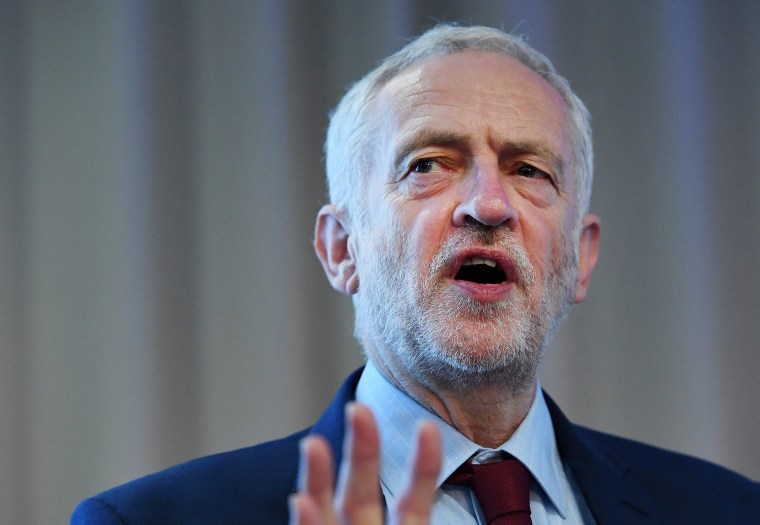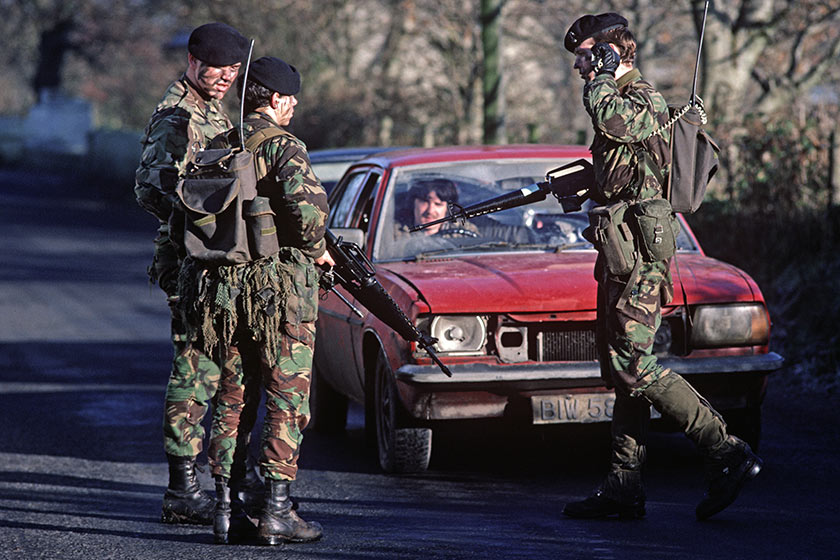LONDON — It was a moment of high drama, but one that brings the United Kingdom no closer to solving its Brexit riddle.
On Wednesday night, Prime Minister Theresa May survived a bid to oust her triggered by lawmakers within her ruling Conservatives.
But with around one-third of May's party colleagues voting to get rid of her, many saw it as yet another blow to her authority.
The fact remains: Brexit is now effectively a game of brinkmanship.
Britain voted to leave the European Union in June 2016 and is set to complete this exit on March 29. But right now politicians can't agree how this divorce should work.
If they can't come up with a plan, the default scenario is that the U.K. will crash out of the E.U. without a deal — something experts say would have disastrous consequences for the British public.
Economic misery, gridlocked ports, shortages of medicine and food, disrupted flights and a potential rekindling of violence in Northern Ireland are all very real threats.
The question is: Will the threat of a painful no-deal Brexit be enough for one of the factions to blink?
"It's a gridlock scenario," said Professor Feargal Cochrane at the University of Kent. "Even if Theresa May had lost the leadership challenge, whoever replaced her would face the same problems."
May has negotiated a divorce settlement with the E.U. but it needs to be confirmed by the British Parliament. This looks unlikely because it is hugely unpopular among lawmakers of all stripes.
The prime minister has already postponed a vote on her deal because she knew she would lose. She has promised it will be rescheduled before Jan. 21, just two months before Brexit happens.
Some experts think the only chance May has of passing her deal is if lawmakers get to this final crunch phase — with a no-deal Brexit looming weeks away — and are spooked into believing May's deal, or a tweaked version of it, is the only way to avoid disaster.
That would require either Conservative or opposition Labour politicians to compromise, supporting a deal they had previously vowed to oppose.
"I think May's strategy is to run the clock down to the very last second," Cochrane said.
If May's own lawmakers can't be convinced, might European officials budge enough to break the deadlock? On current evidence, that looks unlikely.
The main problem with May's plan is how it would impact the border between Northern Ireland, with is part of the U.K., and the Irish Republic, which is a separate country and will remain part of the E.U.
Many worry the prime ministers' solution — the so-called Irish backstop — gives the E.U. too much power, could break up the U.K., or even risks a return to the sectarian violence that plagued the region for much of the 20th century.
In a bid to overcome this widespread opposition, May has returned to the European negotiating table to seek assurances that this backstop will never be used.
Europe also wants to avoid a no-deal cliff-edge — something that would see pain inflicted all around. But E.U. officials have insisted that they will not renegotiate the core of May's deal, especially not the problematic parts about the Irish backstop.
Faced with imminent no-deal catastrophe, British lawmakers could seek a different but equally drastic solution. Instead of supporting the prime minister's plan, they might try to trigger a general election.
Because of the way the parliamentary arithmetic stacks up, this might require a small number of Conservative lawmakers to vote to bring down their own government. Some of them have already suggested this scenario might eventually be considered preferable to a no-deal Brexit.
"That's the nuclear weapon," said Charles Grant, director of the Centre for European Reform, a think tank.
An election could also be triggered with the help of the Democratic Unionist Party, a small Northern Irish group currently acting as kingmaker for the government. The Conservatives have just 317 of the 650 seats in the Parliament, so they require the DUP's 10 lawmakers to prop it up and rule. But despite their opposition to May’s Irish solution, they’ve so far said they wouldn’t bring down the government.
If enough Conservatives or DUP lawmakers did change their minds, the government could lose a motion of no-confidence. That would trigger a 14-day period where rivals within May's Conservatives or the opposition Labour Party might attempt to try to form a government of their own by winning the backing of 326 lawmakers from across the political spectrum.
"There are no set rules, it would basically be a free-for-all," according to Prof. Meg Russell at University College London. "It would be a very chaotic situation."
Based on the current math, it appears hard for Labour — which has 257 lawmakers in Parliament — to gather enough support from other smaller parties to remove May's Conservatives from power.
That throws open the possibility that lawmakers from across the aisle might decide that bipartisan cooperation could be the only way through.

This would involve Conservative and Labour lawmakers forming some sort of coalition in a bid to achieve a "softer" version of Brexit — likely something closer to the status quo — or even a second referendum. Most lawmakers back Brexit but not in as harsh terms as those negotiated by May.
“If it’s a second referendum is advocated by the government then it’ll be May who has blinked,” said Alan Wager, research associate at the UK in a Changing Europe think tank.
Grant, at the Centre for European Reform, believes that this is becoming more likely as a potential no-deal approaches.
"I think what we're going to say is traditional party structures beginning to break down, cross-party groups who can come together to push various options," he said.
This bipartisan coalition could work as an informal group that "bullies and cajoles" May's government into a more moderate path, Grant said.
More unlikely is the possibility that Conservative and Labour lawmakers could form something called a "government of national unity" — putting aside their differences and governing as one united group.
"This is not impossible, but it is as contrary to the traditions of British politics as it is to American politics," said Wager. "These two parties are two very different cultures, two very different tribes ... so it would have to be a last-ditch thing."



